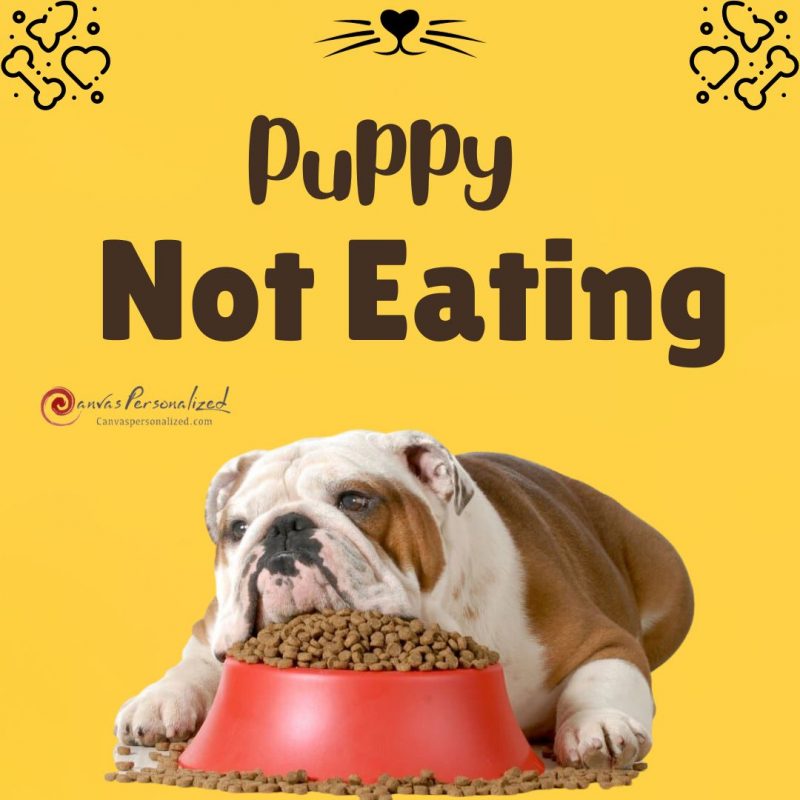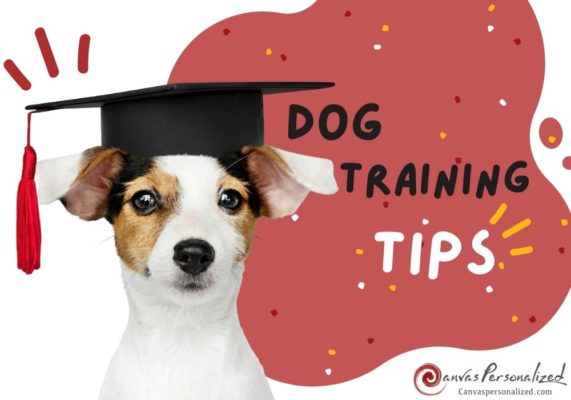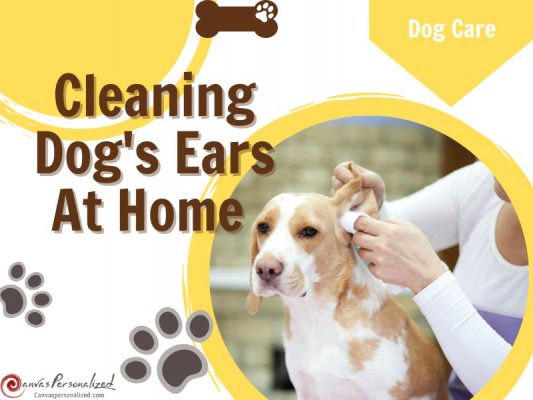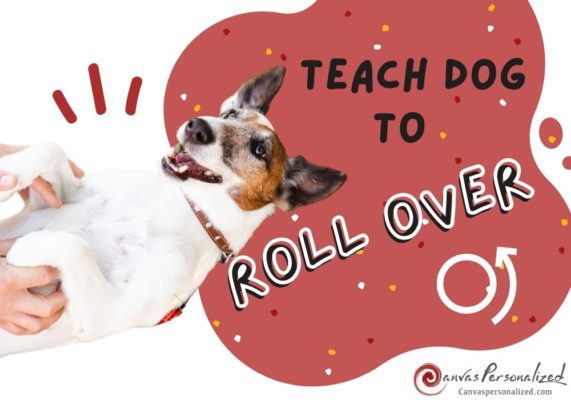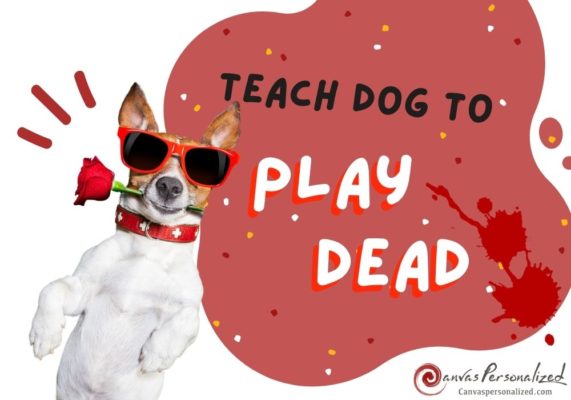It can be nerve-wracking when your beloved puppy isn’t happily eating their food like they normally do. At Canvas Personalized, we understand how hard it can be to deal with a puppy not eating. Here’s the thing: while your puppy might not be devouring meals, what if they’re acting normal, just sleeping more? They even take treats and water! So, when does “not eating much” turn into a cause for concern? Let’s explore the reasons why your puppy is not interested in food and how to navigate these situations.
1. Why Is Your Puppy Not Eating?
There are various reasons why a dog may lose its appetite. This list will examine the possible reasons why your dog refuses food, organized by seriousness, to assist you in deciding the most appropriate steps to take. If your dog hasn’t eaten in 24 hours and is showing symptoms such as diarrhea or lethargy, it’s important to reach out to your vet as soon as possible.
1.1. Dental Problems

Loss of appetite is a common symptom of dental problems. Check your dog’s mouth for anything trapped in the teeth or gums, as, like humans, they may not feel like eating if there’s something wrong with their teeth.
1.2. Illness

Your puppy’s refusal to eat could be due to several medical issues, such as an infection or parasites. Loss of appetite in puppies can be a symptom of more serious diseases such as renal failure, pancreatitis, liver failure, and cancer. You should take your puppy to the vet immediately if you notice it is not eating and assume it is due to illness.
1.3. Environmental Changes

Some dogs become temporarily picky eaters if there is a change in their routine or environment. Moving to a new home, introducing new household members, even loud noises like fireworks – all these disruptions can cause temporary pickiness. Trips, while exciting for you, can be unsettling for your pup, leading to a loss of interest in food. Even extreme heat can suppress their appetite.
Understanding these environmental factors and how they can affect your puppy’s dietary patterns is crucial. Being aware of the signs early on enables you to offer support and stability, and help them regain a healthy eating routine.
1.4. Medication

Puppy loss of appetite post-vaccination or starting a new medication is common. If your dog isn’t on a hypoallergenic diet, some chicken and rice may help with medication-induced loss of appetite.
1.5. Overfeeding
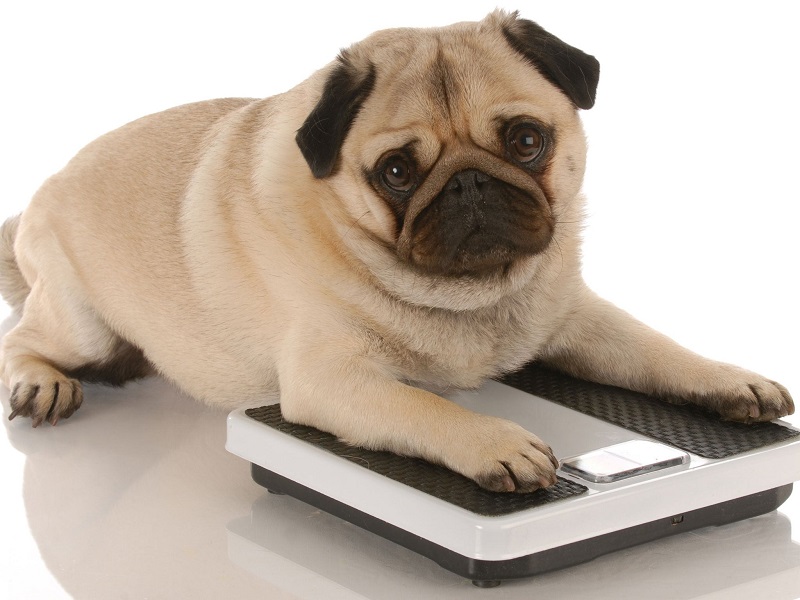
Don’t jump to conclusions about a picky eater just yet! Puppies, like humans, can get full. Treats are a fantastic training tool, but too many can leave them uninterested in their regular meals, which might be why your puppy won’t eat food.
You should track how often you feed your dog treats daily (including any table scraps or snacks from other family members). By doing this, you can make sure that they are not consuming more calories than necessary, which could unintentionally lead to a decrease in appetite during meals.
Furthermore, the serving sizes on dog food packages are typically meant as general guidelines. They may not consider your dog’s individual needs. An energetic puppy will consume more calories compared to a less active one. It would be a good idea to reach out to your veterinarian for guidance on determining the appropriate portion size for your pet. They will consider factors such as your puppy’s age, activity level, and breed to provide you with the best recommendation.
1.6. Picky Eaters

There may not be anything substantially wrong if your dog is just refusing some food. Perhaps you’re dealing with a finicky eater. Dogs that have been fed a wide variety of foods, who obtain table scraps frequently, or who are fed at irregular intervals are more likely to develop this issue. A new puppy’s refusal to feed may not necessarily indicate illness.
1.7. Food Quality

If your dog has been eating a certain food for years but has now stopped, ensure it hasn’t gone bad. Dry kibble can develop mold that people can’t see, but dogs can smell it, so it’s best to test the expiration date of that food. Besides, it’s possible that the components have changed, so trying a new flavor would be a good idea, too.
1.8. Anxiety and Stress
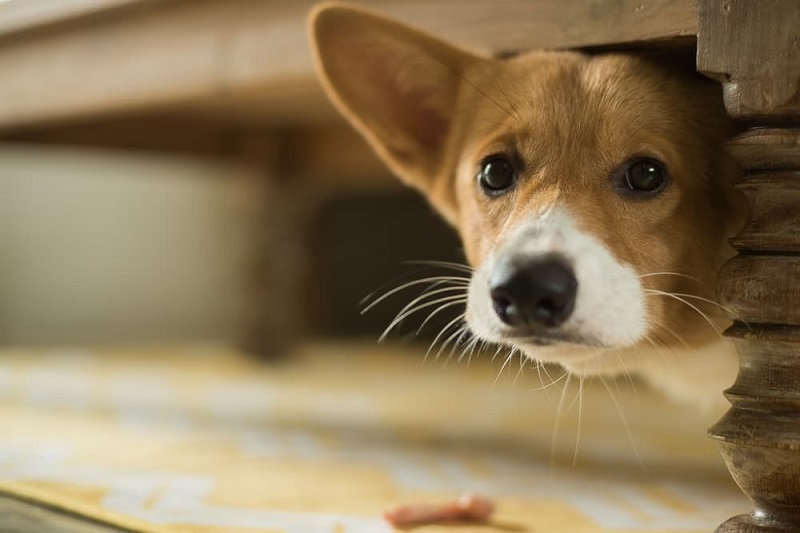
Like humans, dogs can suffer from worry and stress. They might become so anxious and stressed that they stop eating, just like people. Puppies can experience stress and anxiety for various reasons, including being abandoned as a youngster or experiencing a sudden change in ownership. One of the symptoms of separation anxiety in puppies is a loss of appetite.
1.9. Absence Of The Owner

When you get home, some dogs will immediately begin eating again, while others will ignore their bowls the entire time you are gone. Since dogs are pack animals, they could feel more at ease eating in your home. If this is the case, consider giving your dog his or her dinner at least 10 to 15 minutes before leaving so that it has time to finish before you go.
1.10. Digestive Issues

A puppy has no concept of what is healthy or unhealthy for them. This could lead to gastrointestinal problems if they ate something they shouldn’t have or if you fed them something they shouldn’t have unintentionally. Dog treats, in particular, can be too rich for your dog’s digestive system and cause diarrhea. And if your dog figures out that its food is the source of its stomach troubles, it may stop eating altogether.
2. What Can You Do If Your Puppy Doesn’t Want to Eat?
This list prioritizes simple solutions to get your pup eating again. We’ll begin with the simplest adjustments that can be easily incorporated into their routine and then gradually move on to more complex methods.
2.1. Try different dog foods
Puppies can become tired of eating the same kibble every day. Feel free to try out various flavors or switch up your dog’s diet to see if it suits his taste buds.

Some pups simply prefer a more enticing texture. Adding wet food to their dry kibble can provide extra moisture and enhance the flavor. Begin by combining a small portion of moist food with their usual dry food and slowly increase the quantity if they appear to relish it. This can help make mealtime more enjoyable without drastically altering their diet.
2.2. Combine their food with something appetizing
Try adding some human food to the mix and see if it helps. Steamed or boiled butternut squash, sweet potatoes, or pumpkin are good possibilities, as are plain chicken, fish, or a little low-sodium beef or chicken broth. Avoid giving them any onions or garlic, which can cause stomach upset in dogs.
Remember
To keep gastrointestinal problems at bay, it’s best to introduce new foods slowly over the course of several days. Monitor your pup for any signs of discomfort, such as vomiting or diarrhea, and adjust accordingly.
2.3. Try out new feeding ways with your dog
Both you and your puppy need to relax during mealtime. Use interactive elements like puzzles or food dispensers to keep people interested. Obedience training with kibble as a reward can be just as entertaining and engaging.

2.4. Consistent feeding schedules
Separate the meals into two or three portions and serve them regularly throughout the day. To help establish meal times and prevent your dog from snacking between meals, pick up any uneaten food within 10 minutes.
Don’t feed your dog regular meals; use the kibble as a treat. With no other options, your dog will have to consume the food you provide and, perhaps, become accustomed to it.
2.5. Reheat the meal
In the same way as us, dogs love a hot meal. You can microwave the food briefly or add a tablespoon of warm water. Make sure it’s not too hot, or your dog’s tongue could be burned.

2.6. Offer food in a new location
Your puppy may not be eating kibble because they are nervous about eating in front of other pets. If you typically feed your pets together, try feeding them separately for a change. Remove any potential sources of anxiety and make the eating situation as relaxing and secure as possible.
2.7. Walk before eating
You can increase your dog’s appetite by walking it out well before feeding. Dogs are creatures of habit and frequently connect certain situations with particular activities. It might become ingrained in your dog’s routine if you regularly walk them before feeding them. Walking eventually signals to the dog that mealtime is approaching, leading to a phenomenon known as Pavlovian conditioning.

3. When Does a Puppy Not Wanting to Eat Require a Vet Visit?
You should take your dog to the vet if:
- Doesn’t appear to have eaten in the past day
- Not eating for the past 12 hours because of illness or diarrhea
- Not consuming any food or liquids
- Is weight loss
- Is unusually fatigued
- In other aspects, it seems sick. Example (s): coughing, constipation, or straining to poop
- Displays symptoms of dental problems (such as a lack of appetite, dribbling, pawing at their face or mouth, and so on).

4. How Much Food Does Your Puppy Need?
Puppies grow day by day, and their nutritional needs change with them! According to The American Kennel Club‘s roadmap for feeding your puppy during their first year, this section will cover the suggested feeding frequency, food type, and portion sizes based on your pup’s age and development.
| Age Range | Feeding Guidelines | Notes |
|---|---|---|
| 6–12 weeks | Puppy food, 4 times a day | Large breeds: unmoistened dry food by 9-10 weeks, Small breeds: by 12-13 weeks |
| 3–6 months | Decrease to 3 times a day | If still roly-poly at 12 weeks, continue puppy portions until mature. |
| 6–12 months | Begin twice daily feeding | Post-spay/neuter, switch to adult food. Small breeds at 7-9 months, larger breeds at 12-14 months. |
| After 1 year | Adult dogs, two half-portions a day | – |
5. FAQs about Puppy Isn’t Eating
Why is my puppy not eating much but acting normal?
High-quality nutrients are essential for growing bodies. If your puppy hasn’t eaten in more than a day but seems otherwise healthy, it’s best to seek veterinary assistance. Is your dog also averse to drinking water? After 48 hours of not eating or drinking, call your veterinarian.
Why is my puppy not eating his food but will eat treats?
Just like you wouldn’t crave a full meal after a delicious dessert, too many treats can leave them feeling full and disinterested in their usual meals. Additionally, some puppies can be picky eaters. Their kibble may be uninteresting, or they may prefer a different texture or flavor. While rare, a lack of appetite for normal meals and a love of desserts may indicate a medical issue. Always visit your vet if you’re worried.
Is it normal for a new puppy to not eat?

It’s normal for newly adopted puppies to take a few days to adjust to their new environment. Their worry or stress levels may be high thus they may be very selective eaters at this time. Take note of how your puppy is behaving and whether it is still drinking water. If they’re drinking water and seem playful, a little pickiness for a few days is normal. Still, don’t hesitate to call the vet in an emergency if your puppy suddenly stops eating or drinking or appears extremely weak and listless.
>>> Recommended reading:
- Top 10 Common Corgi Health Problems and How To Prevent Them
- 26 Common House Plants Poisonous To Dogs You Should Avoid
- 44 Plants Safe for Dogs: A Guide to Pet-Friendly Greenery (Outdoor & Indoor)
Although a puppy not eating might be a worrying situation for pet parents, it is a problem that is frequently remedied with patience and empathy. You may assist your canine companion in regaining a healthy, content, and hearty appetite by taking into account the typical causes of a puppy’s loss of appetite and taking the necessary action to solve the problem. Remember that the best course of action to guarantee your puppy’s well-being is to seek professional veterinary care if the issue persists or is accompanied by alarming symptoms.


